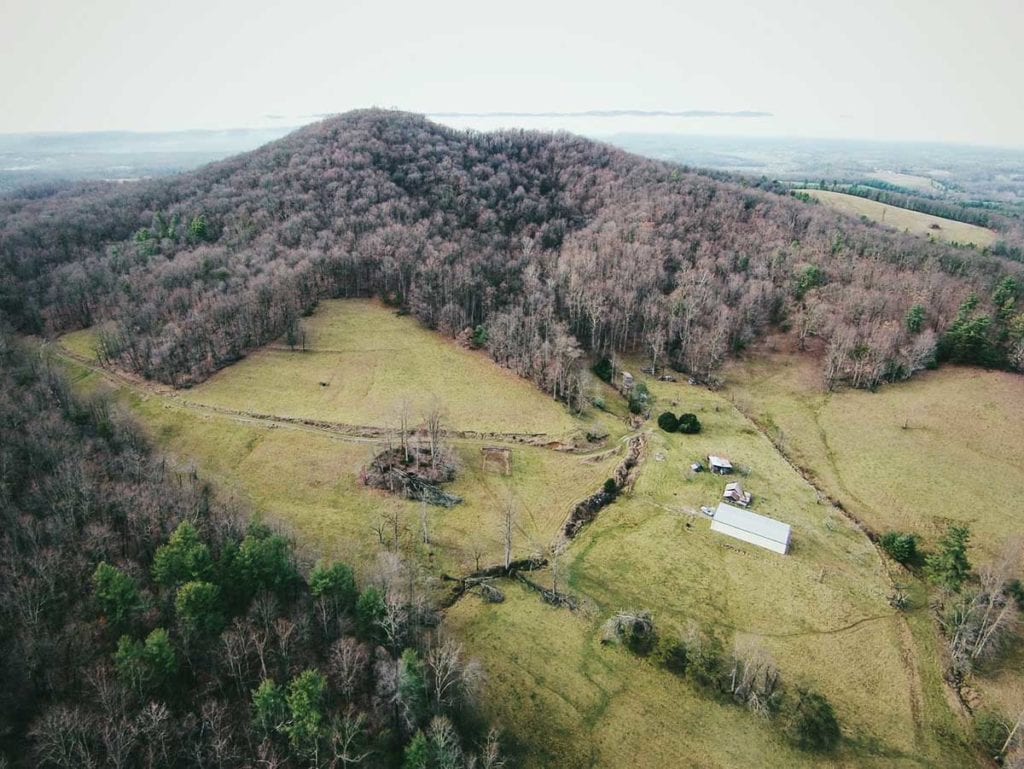[vc_row][vc_column][vc_column_text]Photo by Shep McAllister on Unsplash
I had the opportunity to briefly speak with Nikki King to get an understanding of how Promises Behavioral Health can further help our rural communities and what her recommendations are on how to handle this newly added isolation.
Addiction is one of the most difficult struggles that millions of Americans battle with daily. Those of us who live within metropolitan areas have the benefit of conducting a quick Google search to find addiction and mental health treatment options in our area.
However, for the millions that live in rural towns throughout the country, finding accessible addiction treatment isn’t easy. These areas, the real ‘bread-and-butter’ of American society, suffer the most. Typically, our less populated regions lack the type of addiction treatment necessary to help people recover. Instead, those suffering from substance use disorders, such as opioid addiction, find themselves stuck in the cycle of the American correctional system, or they end up losing their lives.
The reality is that millions of people cannot find the care they need. With the current dynamic of the coronavirus pandemic added to this equation, the problem becomes even more dangerous.
Nikki King, the manager for Margaret Mary Health in Batesville IN, serves on the frontlines of addiction and mental health treatment in rural America. In her feature article with The Atlantic, Nikki details how she has seen the effects that addiction, opioid addiction specifically, has on small-town America. In her fight to not only bring awareness to the small-town opioid crisis but also create systems that can help mitigate the number of those suffering from addiction, Nikki has made her mission to bring health and healing to those that need it most by creating a program that helps keep substance users from the cycle of the correctional system.
When I spoke with Nikki, there was a glaring topic on our minds — the coronavirus and the effects this state-mandated isolation has on those in recovery and those now in the midst of their addiction. “It’s a great time to refocus on yourself,” Nikki said, detailing how those in recovery can use this time to exercise, get out in the yard and how spending time moving their body can help create positive coping skills during a time of heightened anxiety.
“It’s a great time to refocus on yourself.”
Nikki expanded on this idea, “The most important thing is to stay connected to your groups. Whatever group you are a part of, reach out and find ways to stay connected.” The coronavirus has presented a unique opportunity to provide addiction and mental health support through virtual meetings, such as Zoom calls, telehealth, and therapy chat apps. Nikki explained that all Mary Margaret’s meetings are now conducted via telehealth services. They have even set up public space with internet connection for their patients that don’t have online access at home.
The harsh truth, however, is that to those experiencing addiction today it may seem hopeless to make that connection to find help. Many hospitals are not accepting patients experiencing substance use or mental health symptoms at this time. But there is hope. Many behavioral health treatment centers are now trying to close those gaps in care by offering telehealth treatment options.
In order to rid the barriers that keep individuals from getting treatment, Promises Behavioral Health has extended their treatment options by creating the Providing Access To Hope (P.A.T.H) Virtual Intensive Outpatient program for their facilities in Texas and Florida. The P.A.T.H program makes it possible for those seeking help to receive care in the comfort of their home, no matter what their location may be within the state.
“It’s not the perfect solution,” Nikki mentions. “It’s difficult to keep patients engaged for 9 hours a day.” But those are challenges that behavioral health professionals are willing to take to help patients that may be living in remote locations or have physical disabilities that limit their treatment options. While these programs cannot replace the full spectrum care that residential treatment options provide, telehealth bridges the gap in addiction care.
Still, Promises Behavioral Health’s treatment centers have remained open to accepting residential clients. Their family of facilities has implemented COVID-19 safety protocols to ensure the wellness of their clients and staff. With this extension in telehealth services, it is their hope to be able to reach a wider range of those in need of substance use treatment, especially those that are located in small-towns throughout the United States, while still ensuring the highest quality of addiction and mental health care.
Now more than ever is the time to reach out to our rural neighbors in order to make an effective impact on the health of our country and end the crisis of addiction. With the help of first responders, parole officers, churches, and small-town communities we can come together to help those in need. Promises Behavioral Health is dedicated to seeking out innovative ways to extend their services and remove the barriers that keep people from seeking treatment.
If you or your loved one is in need, please don’t wait. We are committed to creating safe spaces for you to find the path to a better, brighter life.
Written by Chrissy Petrone
Content Writer with Promises Behavioral Health[/vc_column_text][/vc_column][/vc_row]

